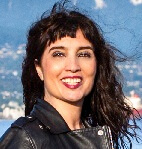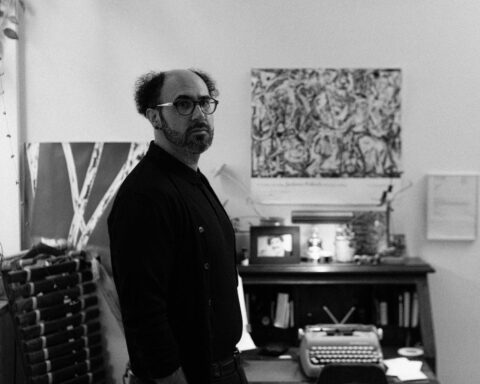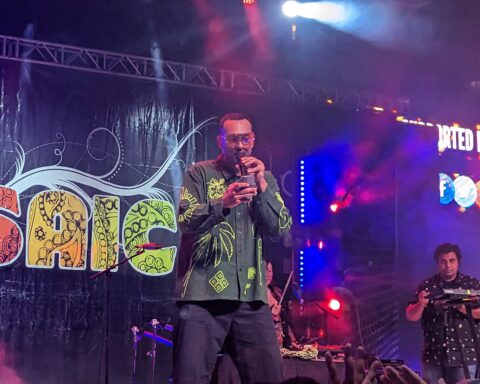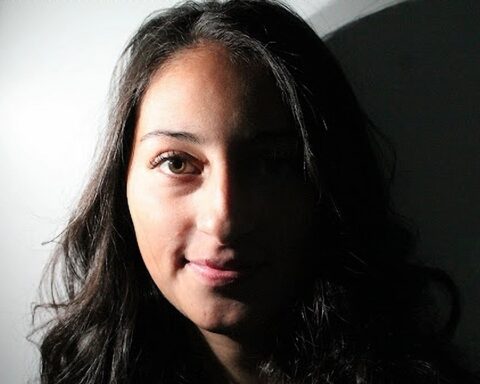As a Vancouverite, I have always been particularly obsessed with winter solstice. I blame this on Seasonal Affective Disorder and the fact that, in addition to our incredibly short winter days (we are at a higher latitude than Toronto), we also suffer from a profound lack of sunshine this time of year.
It often requires Herculean efforts to just get out of bed in December, and it’s a time of year when I feel a profound kinship with the black bears of British Columbia, who, unlike working humans, have long surrendered to winter hibernation, dreaming of spring time berries.
I have witnessed solstice rituals around the world. My favourite was in Ireland’s Newgrange (the seat of the Fairy Kingdom) where every year on the solstice, a shaft of light illuminates an underground chamber with unfailing accuracy.
Happily, it seems that locally there is a new movement afoot to reinterpret rituals about the coming of the light, from many different cultural communities. While some – like the Goh Ballet’s Nutcracker or Early Music Vancouver’s recreation of 17th Century German Yuletide – celebrate established traditions, others are breaking new ground.
Deep listening
My first encounter was with Music on Main’s concert, entitled Music for the Winter Solstice. While firmly based in a Western contemporary classical music tradition featuring culturally “Christian” composers, the evening was a secular exploration of the meaning of Solstice.
The emphasis was on a sense of meditative stillness and contemplation – something that came quite naturally to the event where a group of music lovers forsook shopping mall chaos to sit together in an intimate space and practice the art of deep listening. Composer in residence, Caroline Shaw, even offered a simple carol for the assembled audience to sing together.
Poetry by the late Robin Blaser as well as Colin Browne was offset by seven compositions ranging from Schubert to Alfredo Santa Ana (whose A Short Song for the Longest Night of the Year was a highlight). Couloir Duo Ariel Barnes (on cello) and Heidi Krutzen (on harp) playing (with pre-programmed electroacoustics) James Maxwell’s Serere offered a compelling musical exploration of seasonal sentiment that took listeners on a contemplative journey from darkness to light and back again.
If the concert celebrated the sacred art of slowing down, the serenity of the evening prepared me well for the sparkle of an inter-faith Hanukkah party two days later.
Organized by local Reform Rabbi David Mivasair, it was held at a Palestinian restaurant called Tamam’s, whose owner hails from Jerusalem, but has been battling Israeli courts to keep her residency. The party was partly a fundraiser for her legal costs, but was mainly a lovely celebration of the Hanukkah traditions of miraculous light in the midst of darkness, not to mention Canadian multiculturalism.
Inter-faith connections
I arrived to find a packed restaurant of celebrants – including Palestinian Christians, Pakistani Muslims and Israelis – listening to Rabbi Mivasair sing Hanukkah songs, illuminated by dozens of candles and menorahs in the window of Tamam’s.
I found some space at a table and sat down to a Palestinian feast that included a delicious kind of Arabized latke. My dining companions included a South Asian Sufi professor of classical Arabic and a Jewish musician, who as it turned out, were both from Chicago.
The whole event had an appropriate air of Levantine cosmopolitanism, as befits a region where separation walls are an historical anomaly, and where a mercantile culture meant many interfaith social connections.
I remembered stories from my great-grandparents’ village in the Bekkah Valley of how holiday rituals were shared by Muslims and Christians alike – from midnight mass to Eid-il-Fitr. I remembered, too, stories from Palestine of friends in Gaza with Jewish grandmothers, of pre-1948 inter-marriage and of current movements like the Jerusalem Peacemakers who pray and celebrate holidays together.
…how wonderful it was that this kind of gathering was so effortless and so possible in Canada – a place with no checkpoints or occupying soldiers or “religion” stamped into one’s passport.
When I lived in Jerusalem’s old city in 1994, writing for the first post Oslo accord joint Israeli/Palestinian monthly magazine (the New Middle East), I always took a three-day weekend, listening to the hypnotic Friday prayers at al-Aqsa mosque, accepting offers of Shabbat dinners, and going to mass on Sundays. With a mixed faith, mixed race background, I’ve never liked to limit my options. So this Hanukkah party was perfect.
Small rituals
Before I had a chance to count my blessings and to consider how wonderful it was that this kind of gathering was so effortless and so possible in Canada – a place with no checkpoints or occupying soldiers or “religion” stamped into one’s passport – I was swept up in the celebration.
I sang some songs with the Jewish musician from Chicago – La Vie En Rose – pour la francophonie – Besame Mucho – just because – and eventually lead the room in a rousing rendition of Hava Nagila. Next on the program was a little group belly dancing to the music of Marcel Khalife.
In a slightly surreal moment, I ended up doing Arabic arabesques with a gay Israeli/English couple (Shai and Nigel) who entertained me with stories of a recent trip to Tokyo for a square dancing convention (yes, it is big in Japan!)
The evening ended with a traditional game of dreidel (which Tamam won!)
I was lucky to receive a special Hanukkah blessing from Rabbi Mivasair – a prayer in Hebrew and one in English – “keep your light going strong, even when darkness surrounds you.”
It is comforting to know that in these dark days of winter, and even darker days of global violence, there are small rituals we can enact together that still have the power to illuminate from within.
Hadani Ditmars is the author of Dancing in the No-Fly Zone: a Woman’s Journey Through Iraq, was a past editor at New Internationalist, and has been reporting from Africa and the Middle East for two decades.





